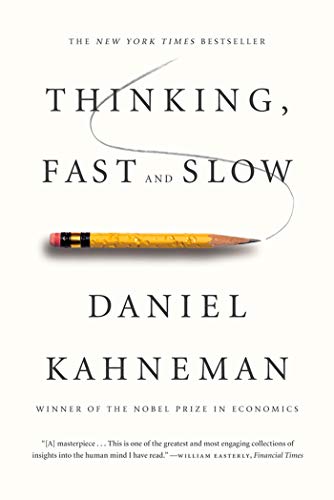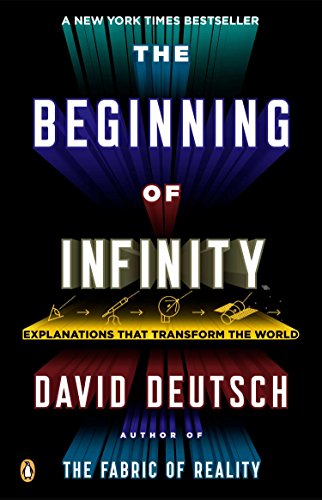What are
/r/VeryBadWizards'
favorite Products & Services?
From 3.5 billion Reddit comments
The most popular Products mentioned in /r/VeryBadWizards:
The most popular Services mentioned in /r/VeryBadWizards:
Open Culture
The Great Courses
SemanticScholar
GNU Emacs
JustWatch
Audible
Letterboxd
The most popular reviews in /r/VeryBadWizards:
Anyone know where to legally download/purchase the Ted Chiang story? Not finding it on Amazon.
Nevermind found it - it's in this book: https://www.amazon.com/Exhalation-Stories-Ted-Chiang/dp/1101947888/ref=nodl_
I'll check out David McRaney's stuff then, thanks. This website about biases recently got me interested in the topic. I've read Thinking, Fast and Slow - I agree, very informative without being too heavy. I've also read Flatland before. You can actually find it free online because (I gather) it's out of copyright.
Abstractions are not necessarily non-physical.
For example, software is an abstraction of transistors turning on and off. The abstraction of memory is still physical -- stored in the brain in physical grey matter :P
There is a great book David Deutsch that you can get here: The Beginning of Infinity, which provides an excellent definition of abstractions and explanations.
OR... get someone who does believe that racism is real!
I know he's in high demand right now, but your episode on Paul Butler's "Poor People Lose" article was great, and he knows this stuff as well as anyone. If you haven't read his "Hip Hop Theory of Justice," I think you'd both drool for it. https://www.semanticscholar.org/paper/Let%27s-Get-Free%3A-A-Hip-Hop-Theory-of-Justice-Butler/cd7f976b8c4139d70e1b4a25d010d36f22aa816a
https://www.gnu.org/software/emacs/manual/html_node/emacs/Sentences.html was what I had in mind, but it isn't the only program that can do this.
You can also move around a word at a time and do lots of other things besides.
It can be frustrating watching somebody try to write and then fix up a text using only arrow keys and the mouse.
I recently listened to this course, so this was an especially well-timed episode :)
I strongly disagree with your notions of dystopia and post-apocalypse being somehow opposed or inherently unable to mix. I'm not even sure I got what you were trying to say in that part, since it seems so counterintuitive, that I must have understood you wrong.
I am a very big fan of Pessoa and, as a Brazilian, would love to see more literature written in Portuguese discussed on the podcast. However, I am unsure that he would be the optimal choice in this category, although I have to admit that I don't know this particular text.
(I would love to see something by Machado de Assis. The Alienist is a cool short story about the social meaning of sanity that should be a good match, and Posthumous Memoirs of Brás Cubas is a surprisingly funny and insightful novel narrated by a bitter dead man.)
Totally agree, Robert Wright and Michael Taft are IMO especially interesting since both are personally invested in the matter and offer reasonable pushback.
And rightfully so, especially in Wright's case, considering a whole chapter of Thompson's book is dedicated to critiquing his book Why Buddhism is True, which incidentally I also found to be a satisfying read.
>That could just be a distinction between fast and slow intuitions. How do you know the slow thinking isn't also guided by intuitions, just "smarter" intuitions?
I guess some definitions are in order. An intuition is by definition something that occurs below awareness and is very fast, on the order of milliseconds. My dictionary says:
>the ability to understand something immediately, without the need for conscious reasoning • a thing that one knows or considers likely from instinctive feeling rather than conscious reasoning
Intentional thinking is, by definition, slow. I highly recommend Kahneman's book, Thinking: Fast and Slow.
>Do you fault him for this lapse of energy?
Yes, of course I do, and I hope you do too. Hannibal Lector is a monster and has no place in civil society.
For lazy listeners who can't be bothered to use your Amazon search link, it would be good to add a link to this story.
Hopefully I got your referrer right.
Unless you like dense but vague prose with no obvious application, I can't recommend this one, at least from the beginning in the free kindle sample: https://www.amazon.com/Mind-Cosmos-Materialist-Neo-Darwinian-Conception/dp/0199919755/ref=la_B000AQ6R56_1_1?s=books&ie=UTF8&qid=1520986930&sr=1-1
But the first taste is free and YMMV. There are lots of blurbs from prestigious publications so go figure.
Somewhat related is a newish book by Hugo Mercier called <em>The Enigma of Reason</em>. The enigma being, if reason is an adaptive trait whose purpose is to help us solve problems and arrive at accurate conclusions about the world then why do people reason so poorly? The answer, according to Mercier, is that the purpose of reason is not to solve problems and reach conclusions, but rather to justify our intuitive conclusions after the fact and persuade others that our intuitive conclusions are better than theirs.
I thought David McRaney's books on psychological biases were interesting. Also, Daniel Kahneman's Thinking, Fast and Slow is a great introduction to behavioral economics, and The Dictator's Handbook by De Mesquita and Smith presents an interesting take on politics. If you're looking for fiction, check out Flatland: a Romance of Many Dimensions, but I wouldn't advise using your credits on it since it's pretty short (and cheap - around CDN 5$).
VeryBadWizards comes from the title of Tamlers book called "A Very Bad Wizards: Morality Behind The Curtain" https://www.amazon.co.uk/Very-Bad-Wizard-Morality-Curtain/dp/193478138X PS: David wrote the foreword to it too (I believe)














